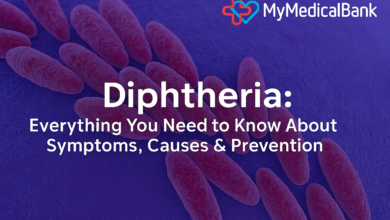DIET AND ITS EFFECT ON HUMAN HEALTH
From the existence of man, diet has continued to play an essential role in the health of man. Despite this, varying misconceptions, beliefs, and standards of living continue to exist regarding the health of humans in terms of dieting. The fact remains that the effect of diet on human health cannot be over-emphasized.
While many people believe and practice good dieting as it improves and promotes health, a larger percentage of the populace feel dieting plays little or no role in the health of an individual and therefore believe that dieting is just for alleviating hunger in man.
Looking at the world currently and the health of individuals, one can vividly see and say people who practice good dieting live healthier and better than those who just eat to quench hunger.
Someone might ask what is diet?
Diet is the total food and nutrients consumed by an individual.
What is health on the other hand?
Health is the state of complete wellness either physically, mentally or socially.
From the above definition, it can be drawn that the total amount of food and nutrients consumed by an individual will determine his health as regards growth, development and performance. Therefore an individual requires good diet to grow and attain optimal health.
Let’s talk about the effect of diet on human health
The effects of dieting on the health of human begin immediately after conception. A foetus requires adequate nutrients to form well in utero [in the uterus] before child birth. If a mother does not fed well or does not have the necessary nutrients needed by a foetus to grow well during pregnancy the process of normal foetal development is disrupted, then foetal abnormality takes place.
In early pregnancy a foetus needs adequate amounts of folic acid, minerals and vitamins for neural development, but this nutrients cannot be gotten by the foetus if the mother doesn’t consume foods containing these nutrients. If the foetus fails to get this nutrients they can possibly come up with a neural tube defects which will further affect their cognitive, intellectual and body development process when they are being born. This is why pregnant mothers are advised to eat good amounts of vegetables, eggs, beans, wheat, milk, fish….and many others to mention; as they contain essential nutrients for foetal development.
Looking at the aspect of weight, in as much as we know a person’s weight can be determined genetically we also know that the kind of food one eat can greatly affects his\her body weight and in turn affect his\her health as seen in the cases of over nutrition[obesity] and undernutrition[marasmus and kwashiorkor].
Over nutrition means eating or taking too much quantity of nutrients we need and obesity which is one of the major effect of over nutrition is as a result of eating more calories than one burn. By the time one develops obesity, one is at very high risk of heart diseases and diabetes. So in as much as we need calories for energy we should also be on the watch for the quantity we consume.
Under nutrition on the other hand is eating little or none of the nutrients required for proper growth and development. Under nutrition as commonly seen in the cases of marasmus and kwashiorkor in children results in wasting, stunting and underweight therefore make them more vulnerable to diseases and death. Under nutrition occurs primarily as a result of lack of essential calories , vitamins and minerals. So therefore it is essential that children are been provided with the needed diet for a healthy growth.
Good dieting is also playing a good role in the immunity of an individual. Immunity is simply one’s inherent ability to provide effective protection and resist illness. Good diet helps to boost ones immune system greatly. Eating diets high in vitamins and minerals such as fruits and vegetables helps strengthen the defence mechanism of an individual against common illnesses such as common cold and allergies.
Homeostasis which is the maintenance of a stable constant internal environment is also determined by the kind of diet an individual consumes. Eating a variety of all types of proteins supplies the body with all the amino acids needed to achieve homeostasis. Carbohydrates which are a major source of energy are used by the body for metabolism such as breathing, circulation and digestion; so also does the body need fats and oils with vitamins and minerals to enable homeostatic balance.
Water; yes water. Wondering why water in dieting. Drinking good and the required amount of water is also very important in the health of an individual. As the saying “water is life”, this is because an individual can survive as much as three days without food but can barely survive 24hours without water. So you see water is very important.
Now looking at why water is important in dieting and the health of man, the total blood volume of an individual is constituted with about 92% water and therefore the blood volume is regulated by the kidneys, so in the case where the body fails to get adequate amount of water, the kidney fails and the blood volume in turn is depleted. also when the body fails to get the required amount of water dehydration could occur.
Drinking water helps to maintain blood pressure, prevents constipation, regulate body temperature and so many other benefits. It is therefore important that an average individual should consider drinking clean, good and at least 1.5litres of water daily to achieve its maximum benefits.
On this note, it is very glaring that an individual’s state of health is partly but greatly determined by what he\she consumes.
Article written by Orndiir Joyce Doose.
Joyce is a registered staff nurse. An advocate for healthy living aiming at promotion of health and prevention of illness.



